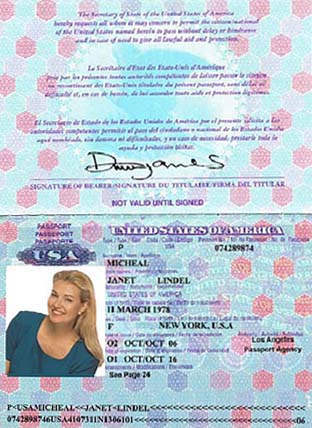
A pyramid scheme is a business model which earns primarily by enrolling others into the scheme, however rather than earning income by sale of legitimate products to an end consumer, it mainly earns by recruiting new members with the promise of payments. As recruiting multiplies, the process quickly becomes increasingly difficult until it is impossible, and most members are unable to profit; as such, pyramid schemes are unsustainable and often illegal.

In law, fraud is intentional deception to secure unfair or unlawful gain, or to deprive a victim of a legal right. Fraud can violate civil law or criminal law, or it may cause no loss of money, property, or legal right but still be an element of another civil or criminal wrong. The purpose of fraud may be monetary gain or other benefits, for example by obtaining a passport, travel document, or driver's license, or mortgage fraud, where the perpetrator may attempt to qualify for a mortgage by way of false statements.

A scam, or a confidence trick, is an attempt to defraud a person or group after first gaining their trust. Confidence tricks exploit victims using a combination of the victim's credulity, naïveté, compassion, vanity, confidence, irresponsibility, and greed. Researchers have defined confidence tricks as "a distinctive species of fraudulent conduct ... intending to further voluntary exchanges that are not mutually beneficial", as they "benefit con operators at the expense of their victims ". Some people consider a pyramid scheme to be a type of scam.

Phishing is a form of social engineering and scam where attackers deceive people into revealing sensitive information or installing malware such as ransomware. Phishing attacks have become increasingly sophisticated and often transparently mirror the site being targeted, allowing the attacker to observe everything while the victim is navigating the site, and transverse any additional security boundaries with the victim. As of 2020, it is the most common type of cybercrime, with the FBI's Internet Crime Complaint Center reporting more incidents of phishing than any other type of computer crime.

A rhinoceros, commonly abbreviated to rhino, is a member of any of the five extant species of odd-toed ungulates in the family Rhinocerotidae; it can also refer to a member of any of the extinct species of the superfamily Rhinocerotoidea. Two of the extant species are native to Africa, and three to South and Southeast Asia.

Rathkeale is a town in west County Limerick, in Ireland. It is 30 km (18 mi) southwest of Limerick city on the N21 road to Tralee, County Kerry, and lies on the River Deel. The town is in a townland and civil parish of the same name.
Events from the year 1959 in Ireland.
Events from the year 1939 in Ireland.
Events from the year 1938 in Ireland.
In business, a boiler room is an outbound call center selling questionable investments by telephone. It usually refers to a room where salespeople work using unfair, dishonest sales tactics, sometimes selling penny stocks or private placements or committing outright stock fraud. A common boiler room tactic is the use of falsified and bolstered information in combination with verified company-released information. The term is pejorative: it is often used to imply high-pressure sales tactics and, sometimes, poor working conditions.
Peter Clarence Foster is an Australian career criminal who has been imprisoned in Australia, United Kingdom, the United States, and Vanuatu for a variety of offences related to weight loss and other scams as well as absconding from justice. His convictions range from fraud and money laundering to contempt of court and resisting arrest.

A romance scam is a confidence trick involving feigning romantic intentions towards a victim, gaining the victim's affection, and then using that goodwill to get the victim to send money to the scammer under false pretenses or to commit fraud against the victim. Fraudulent acts may involve access to the victim's money, bank accounts, credit cards, passports, e-mail accounts, or national identification numbers; or forcing the victims to commit financial fraud on their behalf.

Gareth Raynor is an English former professional rugby union and rugby league footballer who last played for the London Skolars in Kingstone Press Championship 1. He is a former Great Britain international who previously played for Hull FC, the Crusaders, the Leeds Rhinos, and the Bradford Bulls in the Super League. Plus a spell with Aviva Premiership side, Leicester Tigers.

Éamon Zayed is a former professional footballer who played as a forward. He is currently the head coach of Northern Colorado Hailstorm FC in USL League One. Born in the Republic of Ireland, he represented the Libya national team as a player.
Organised crime in Nigeria includes activities by fraudsters, bandits, drug traffickers and racketeers, which have spread across Western Africa. Nigerian criminal gangs rose to prominence in the 1980s, owing much to the globalisation of the world's economies and the high level of lawlessness and corruption in the country.
The Rathkeale Rovers are a group of criminals based in Ireland but operating internationally. They are all members of Ireland's Travelling Community, and use traditional Traveller work such as laying tarmac or home renovation as cover for illegal activities. Their name comes from their links with the town of Rathkeale in Ireland, which has been described as their "base".

Sathuranga Vettai is a 2014 Indian Tamil-language heist film written and directed by debutant H. Vinoth, starring Natraj and Ishaara Nair in the lead roles, while Ponvannan, Ilavarasu, and Piraisoodan, among others, play supporting roles. Produced by Manobala, it features music by Sean Roldan and cinematography by K. G. Venkatesh. The film, touted to be an "indianized con movie", was released by Thiruppathi Brothers Film Media on 18 July 2014 and received positive reviews from critics. It has been remade in Telugu as Bluff Master and is being remade in Kannada as Jagath Khiladi. A sequel titled Sathuranga Vettai 2 starring Arvind Swamy and Trisha began production in October 2016 and wrapped in March 2017, but has not released as of 2023.
Henry Oberlander was the leader of the Hungarian Circle, a gang that defrauded international banks of hundreds of millions of pounds. Following a global investigation, the gang were arrested in 1978 at their headquarters in West London, England. During the trial, the prosecution asserted that the gang "could have wrecked the entire banking system of the Western World". The scam, possibly operating over a twenty-year period, was dubbed at the time as "the greatest fraud in banking history".











